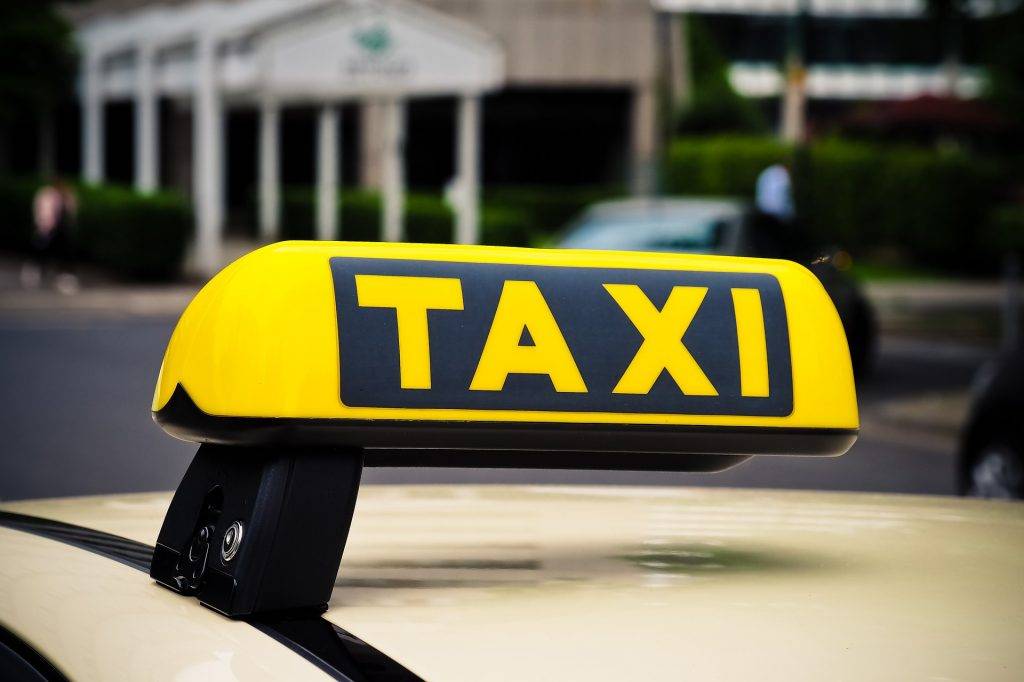A Year After Serving Sweet Chauffeur Promises, Jim Iyke’s Mr. Taxi Is Still ‘Coming Soon’

Roughly a year ago, popular Nollywood actor Jim Iyke announced that he would launch a ride-hailing startup in Southeast Nigeria. Looking to go head to head with Uber and Taxify, Mr. Taxi said it was going to begin operations on October 5, 2018.
It’s been nearly 365 days, and it seems as though the launch never happened. 90 percent of startups fail – could the inevitable shutdown axe have taken its fell swoop? Nigerians liked the idea of an indigenous taxicab firm, but where is Mr. Taxi?
Jim Iyke Reportedly Not CEO

Some weeks after the repeat businessman revealed his intentions, Nigerian media houses were awash with news that Jim Iyke was not the head of the to-be ride-hailing firm. Amid expectations for Mr. Taxi to launch in Ebonyi, Imo, Enugu, Anambra and Abia States, Iyke came under fire for posing to own a company he does not.
Austin Nnaemeka, reportedly the actual CEO of the company, said Jim Iyke was only a brand ambassador that wanted to be a shareholder of the firm. Amid these clarifications, Nnaemeka said the taxi service had plans to expand to the Southsouth region of Nigeria few months after takeoff.
Since then, nothing was heard from Jim Iyke. There’s hardly any sign of the chauffeur service either. It’s hard to judge whether the CEO drama had anything to do with the launch, especially as Nnaemeka used particularly strong words to dismiss Iyke’s claimed lead position.
In the same way the company has not gotten press attention since the last quarter of 2018, there has been no statement revealing that the startup has begun operations anywhere. Nothing was heard from Iyke regarding the accusations either.
Where Is Mr. Taxi?
There is a possibility the startup kicked off operations, being that the smartphone app is still on Google Play Store. But the reviews we discovered from users were those from last year. To put this into perspective, other ride-hailing platforms get scores of complaints each day, even on Twitter.
We were also unable to find concrete traces of the company on Facebook. Searches for “Mr. Taxi” on Twitter only delivered news results from last year too. Finding the firm’s activity on these social media platforms also proved impossible.
When Mr. Taxi was first announced, it had no official website. However, we were able to find one recently, which makes the issue somewhat confusing. Attempts to access it’s Twitter page only directs back to the website, but it appears that their Instagram platform exists.
While there isn’t much activity on there, the last post was shared on June 4, 2019. Given the comments, it would seem the service really did launch, but apparently not fully. Its Instagram followership base and degree of engagement supports this.
What Could Be The Problem?
Uber and Taxify (Bolt) only operates in Abuja, Gulu, and Lagos. With no competition at the time, Mr. Taxi was on the verge of becoming a southeastern leader. There are over 40 million people spread across these states, making up what’s unofficially called Igboland. So, relatively, there are enough commuters for the service to achieve full steam in a nascent market.
The market share of the region has been vied for by another player in a different way; OTrike – an OPay-backed tricycle-hailing service that just launched in multiple Southeast states. And, these states are not so digital per se, which is why the bigger boys on the cab-hailing block are skeptical about expanding there.
The use of tricycles in Southeast Nigeria is near to culture. This practice is backed by the recent ban of bikes in the capital cities of most of these states, especially Owerri and Enugu.
While OTrike is yet to come out completely from launch, there’s presumably a ready market for business. Cab-hailing, on the other hand, may feel too exotic and pricey for the notoriously thrifty easterners.
The company has no known venture capital consideration and has participated in no startup events since. It could be missing in action because of lack of funding. The company initially said it already had 17 official and 54 registered vehicles.
Repeated attempts to reach the company via different platforms proved abortive. Even though it’s uncertain whether the company has since called it quits, it could be shying away from revealing its failure.
Image Courtesy: Yaba.com